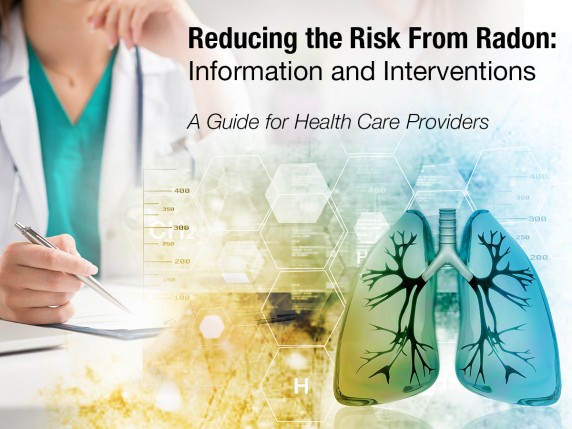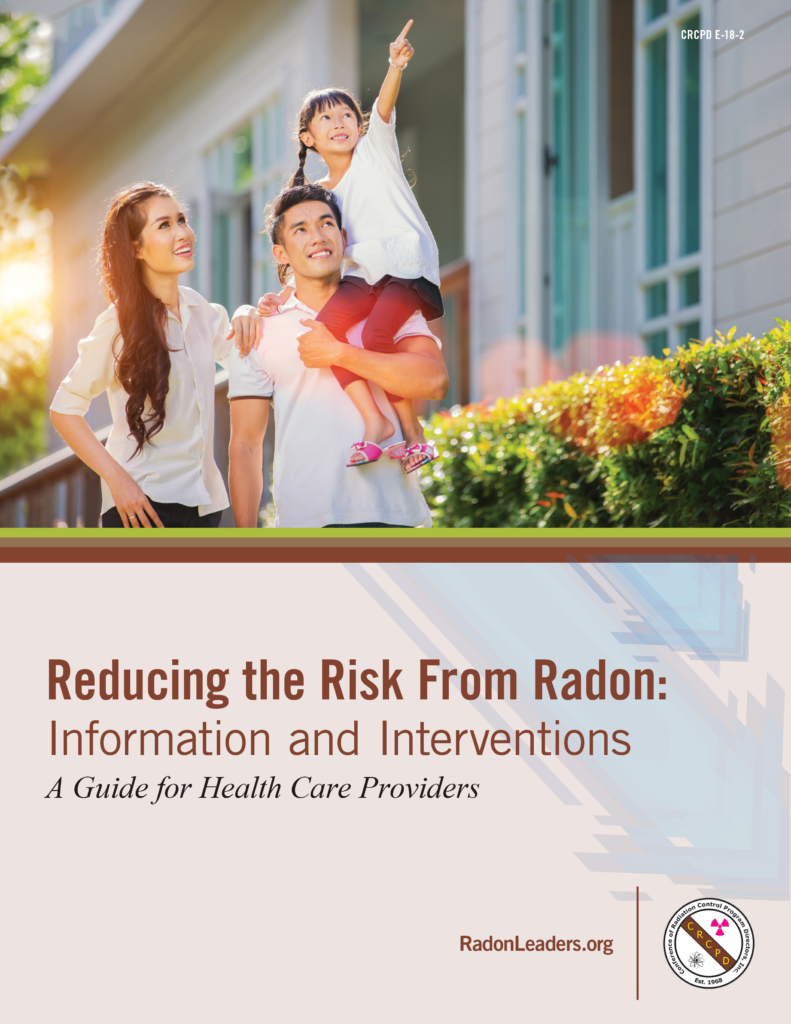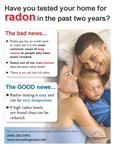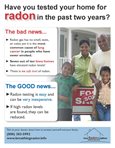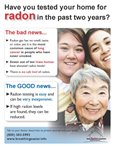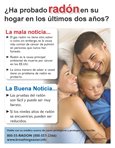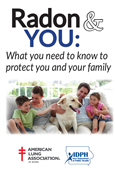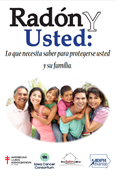
Do you ask your patients if they’ve tested their homes for radon?
“Educating patients about the risk, and promoting the use of radon test kits, is something everyone can do and should do.”
– Charles Lynch, M.D., Ph.D.
“I remember him putting his face in his hands. He was sitting next to me out in his waiting room, and he just said, ‘Why don’t physicians know about this?'”
– Gail Orcutt, Pleasant Hill
“I want physicians personally to test their homes. We can really have an influence if we can get people to test. As physicians, we can model behavior that we’d like our patients to follow.”
-Timothy Vermillion, D.O.
Radon Guidance for Health Care Providers
The Conference of Radiation Control Program Directors (CRCPD), Inc., with assistance of the Environmental Protection Agency and Dr. Bill Field, Professor in the University of Iowa’s College of Public Health, has developed a new guide for health care providers titled Reducing the Risk From Radon: Information and Interventions. This guide was designed to furnish health care providers with the information they need to reduce their patients’ expsoures to radon. Radon is estimated to cause about 21,100 lung cancer death per year and is the leading environmental cause of cancer mortality in the United States.
This guide contains:
- Radon statistics and public health impact.
- The science behind the risk estimates.
- Radon testing and reduction.
- Sample guidance for use in health care settings.
- The roles of health care providers in reducing the burden of radon-induced lung cancer.
The following videos explain how asking this important question could save lives:
This video was made possible by a grant to Dr. Bill Field at the University of Iowa from the Iowa Cancer Consortium, with supplemental support from the NIEHS – funded Environmental Health Sciences Research Center at the University of Iowa. Please feel free to contact us with any questions you may have about radon.
The following webinar, originally recorded on February 4, 2015, explores the issue of radon from a healthcare perspective and shares best practices for incorporating radon education into a healthcare setting.
Free educational fliers and brochures to prompt discussion between physicians and patients:
Packets of 50 printed brochures or fliers may be ordered for free by emailing [email protected]. All materials may also be downloaded and printed at will.
Purchase a low-cost radon test kit from the American Lung Association:
Click here to purchase a low-cost test kit.
Call 800-383-5992
Additional scientific information regarding the association between protracted radon decay product exposure and lung cancer are provided below.
- Residential radon and risk of lung cancer: a combined analysis of 7 North American case-control studies
- Radon in homes and risk of lung cancer: collaborative analysis of individual data from 13 European case-control studies
- Iowa Radon Lung Cancer Study
- Prepared Testimony to President’s cancer Panel on the risk posed by radon decay products
- National Research Council Report on Radon
International and National Guidance on Radon
- World Health Organization Radon Handbook
- President’s Cancer Panel Report – Radon
- U.S. Environmental Protection Agency – A Citizen’s Guide to Radon
- American Cancer Society Radon Information
- Health Physics Society Perspective on Radon
- ATSDR Case Study on Radon for Physicians
- ATSDR Toxicological Profile for Radon


